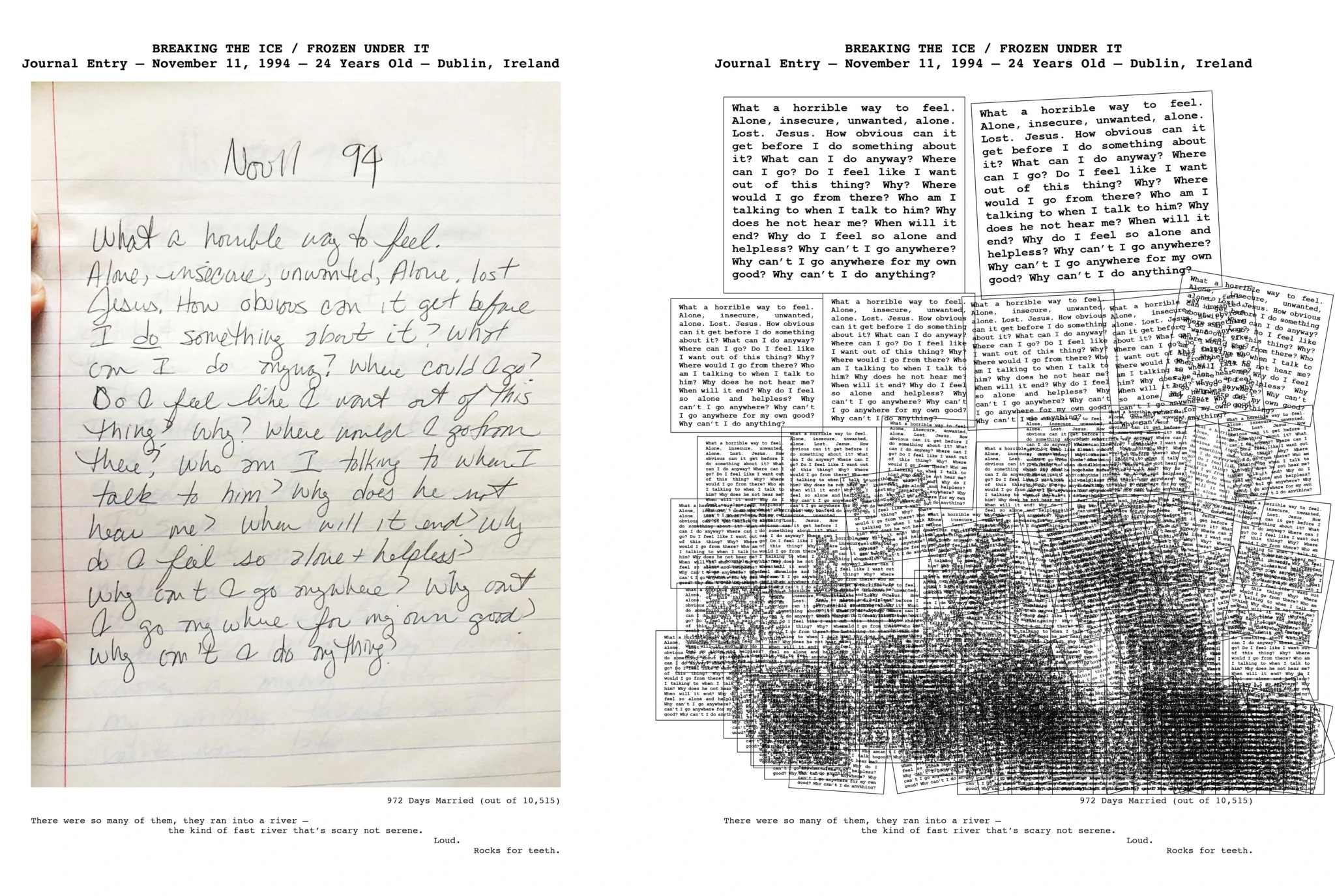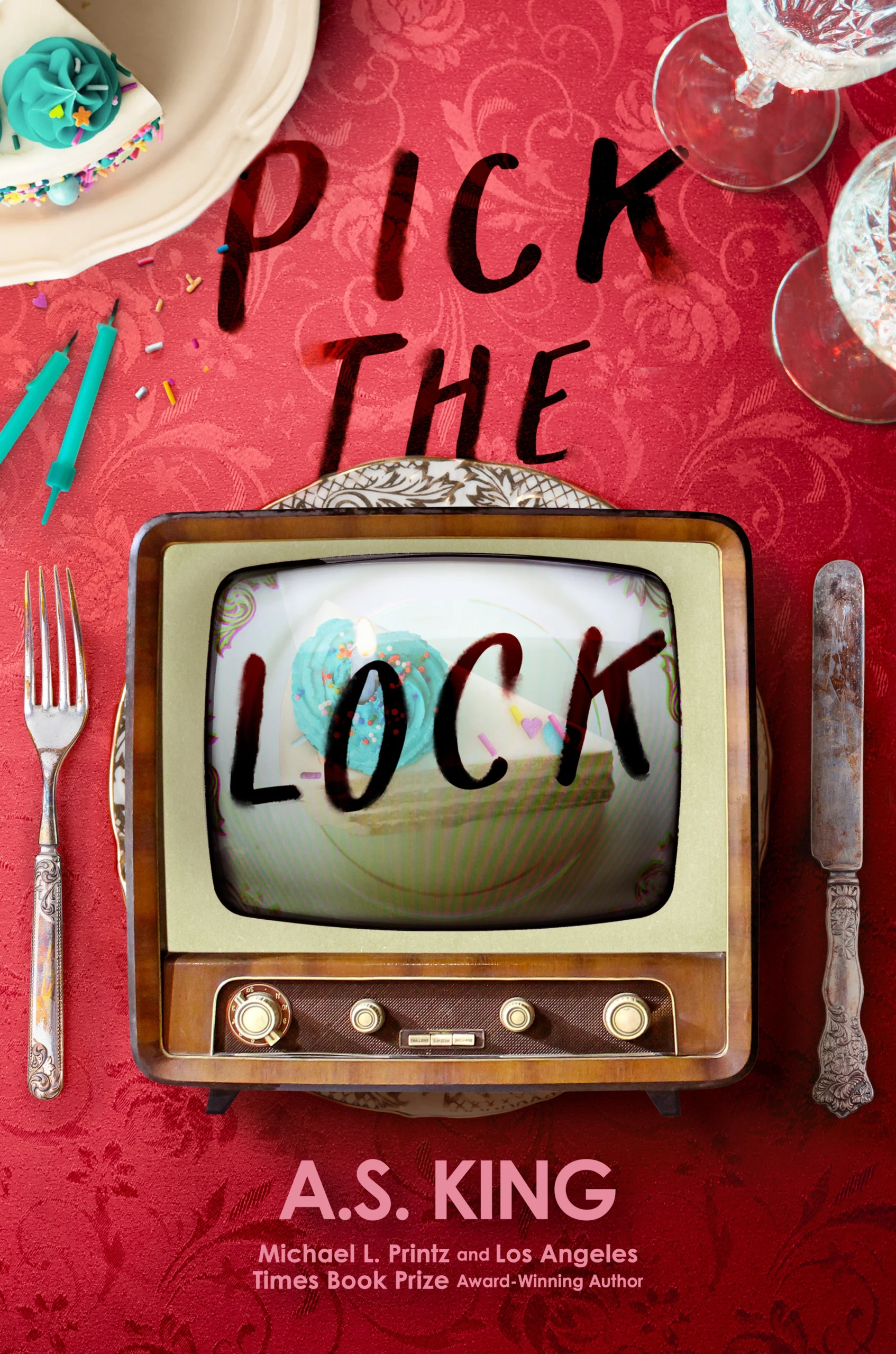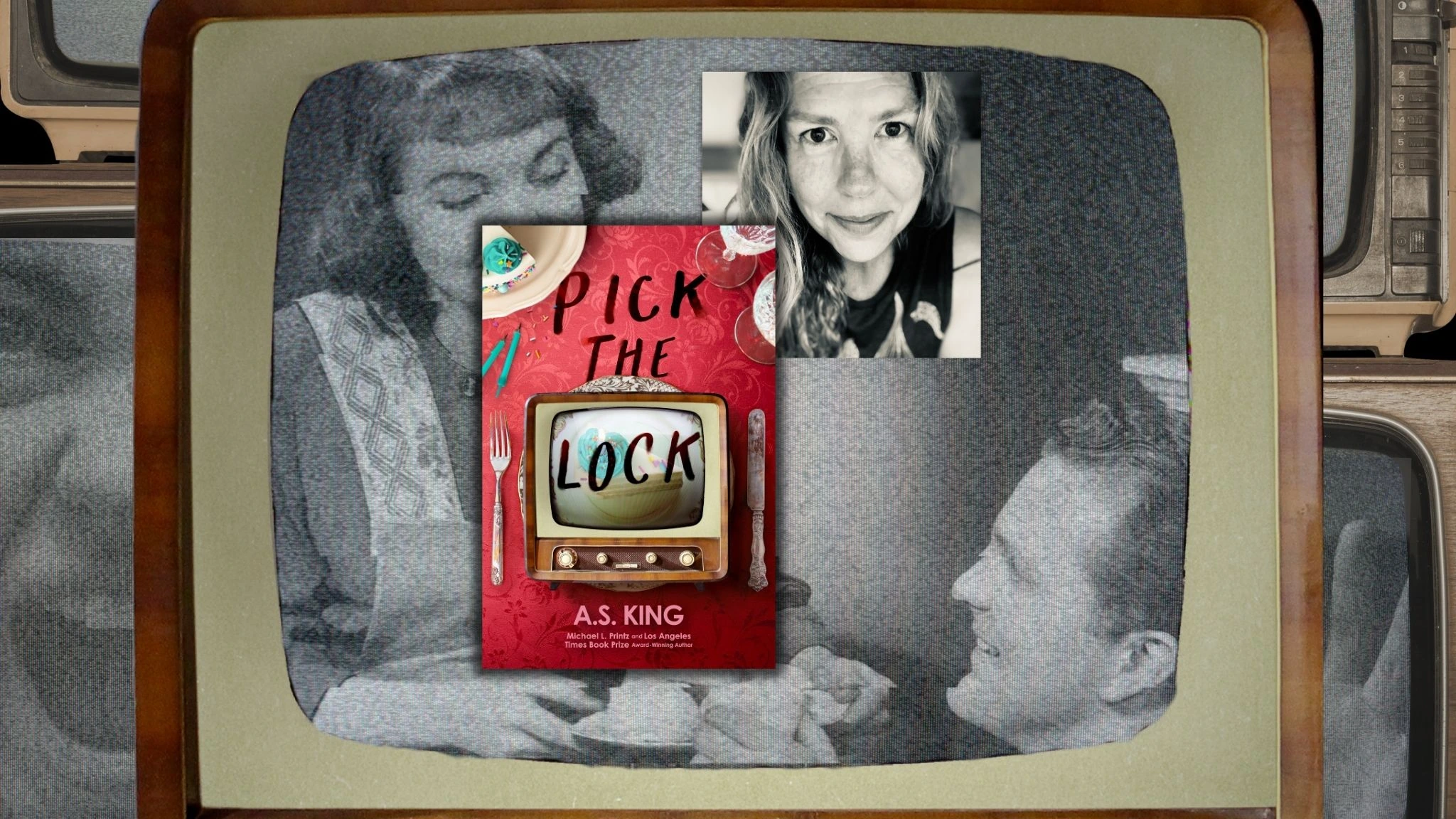Pick the Lock by A.S. King
In this essay, author A.S. King shares her personal history with domestic violence and abuse. Her novel, Pick the Lock, is a stunning, surrealistic, and provocative YA book that explores how our world treats women, told through the eyes of a teenage girl trying to pick the lock on her toxic family.
I think the most important thing to start with is the reality and how it happens.
See — you love a person. You love them a lot. They tell you they can’t live without you, and you surely feel the same. It looks like love. It feels like love. You are usually young. You might be showing your family how grown you are. That ring gains you respect. But you do it for the love. You read an Elizabeth Barret Browning poem at your wedding. You hang your framed invitation on your wall. You are sure your lifetime together will be so special. You never thought about any other option. You do it for the love.
One day, a year in, it changes. You ask a simple question. The reaction is an earthquake. Insults like hot sparks from a place you never knew about. You are confused. It must be a mistake. Everyone makes them.
On your wedding day, your mother grabbed your arm, and she said, so seriously, as you danced and had fun, “This is the hardest work you’ll ever do.” She meant it. Hard work. You do it. For the love. More sparks. Make-up affection, but no real talking about why.
Why is important.
Your whole life you heard it. “Why don’t abused women leave?” Your whole life. They dismiss like it’s some kind of choice to leave a person you love, a person who tells you they love you and that they want to kill you inside the same paragraph. I didn’t mean it. I wish I could take it back. Calm down. You’re acting crazy. You don’t even know your own name two years in. I can prove it. Look.
November 1994. Look.

Here’s what you need to know. Every person who ever hurt you said, “Be cool,” “It’s your fault,” or “I didn’t do that.” Eventually, though once so smart and self-assured, you are emotionally paralyzed. You no longer understand love. This is the hardest work you’ll ever do.
Years go by. You can’t count the items that have been thrown at you, whizzed by your ear. You can’t recall how many places you locked yourself to stay safe, mostly bathrooms and cars — panicking to get all four doors locked. You can’t count the mockery or the insults — you only know that they have eaten you and you are always wrong and you are so difficult to love. Here begins your mission to win him back. But you never had him.
Why doesn’t she leave?
Stop it.
The question is wrong.
The question is Why does he keep hurting her? The question is Why does he lie so much? Questions. That’s all you have. You can’t get divorced. You can’t leave. The myths of your confinement have been sewn into you. Children are involved. You want to give them a good life. You do it for the love. Until you don’t anymore.
Who am I talking to when I talk to him? You will be 52 years old, divorced, and the women will begin to contact you. You will learn the truth in small bites. And you will feel so dumb and so happy at the same time. At least I don’t have to deal with that anymore. But you will feel so sad for the man he never was. He will pretend none of it happened. He will never apologize and mean it. He will say his actions were your fault. He will lie about you to anyone who will listen. There are millions like him. They meet in chat rooms and come up with their own theories. Male expendability. Men’s rights. What a bitch.
This is what I want readers to know:
I want them to know how easy it is to fall for the charming when, underneath is the real answer. Who am I talking to when I talk to him? A phony. A liar. A shoplifter who put you in his pocket. He made you pocket-sized.
When I wrote Pick the Lock, I was writing about the psychological confinement of women. I was writing about the phenomenon of making ourselves small without even being asked. I wrote of an accomplished woman capable of touring the world, but not able to walk away from the confusion in her own home. I wrote about a 16-year-old girl discovering, through decades of security footage, how that really happens.
Why can’t I do something? I wrote in 1994 when I was 24. I know the answer now. I did it for what I thought was love. But it’s important for readers to know that some people’s “love” looks like power, control, and destruction. When at least 33 percent of teen girls experience dating violence in the US, it’s time to talk openly about how it really happens and how we can change the convenient fallacy surrounding violence against women and girls.
Pick the Lock, as many of my books do, asked me to figure out the puzzle of abuse, but it’s too big. I need your help. Let’s change the conversation. Let’s ask the right questions. Let’s stop making excuses — hurt people hurt people. Let’s escape the confinement and grow bigger than we ever dreamed. That’s the core of it. That’s doing it for the love.





